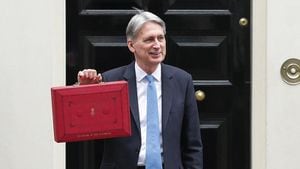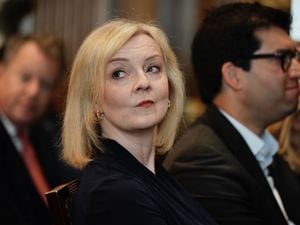Star Comment: Plenty of positives in Budget
When Philip Hammond was asked whether his Autumn Budget would be boring or bold, he answered – with a smile – that it would be ‘balanced’.

If initial reactions are anything to go by, he appears to have escaped relatively unscathed from what was widely billed as a make-or-break Budget.
The Chancellor needs no reminding that up to this point his time in office has been noted mainly for his botched attempt to extract more tax from the self-employed.
Yesterday’s announcement – which was peppered with more poor gags than the average Lee Nelson show – was Mr Hammond’s attempt at proving his worth at the Exchequer.
There was a boost for first-time home buyers, with stamp duty abolished for houses up to £300,000, while the Government’s plans to build 300,000 new houses a year by the middle of the next decade were backed with £44 billion.
The NHS was given a £2.8bn boost, including £350 million to ease winter pressures on A&E units, and a pledge of £10bn capital investment for hospitals over the next five years.
The controversial Universal Credit scheme was also addressed, while the freezing of beer duty will undoubtedly be welcomed by the brewing industry.
However, there was no increase in funding for education or policing budgets, and the bleak forecast for the UK economy does not bode well for the future.
The pro-Remainer also announced that he is willing to spend an extra £3bn preparing for Brexit – surely a wise move bearing in mind the game of hardball the EU appear insistent on playing.
As with any Budget, Mr Hammond will know from past experience that things can very quickly unravel once the small print is examined.
In terms of the impact of the Budget for the West Midlands, we can take away plenty of positives.
The West Midlands has become the first region in the UK to be granted a second devolution deal, a move that will bring greater powers and funding back home.
It is set to be the centre of both the UK’s driverless and electric vehicles revolution, which will boost local companies such as JLR and create new jobs and kick-start the economy in the coming years.
There was also the launch of a housing delivery taskforce to initiate the region’s plans to build 210,000 homes by 2031.
While Theresa May’s Government have floundered over the past 12 months, her administration does appear to be committed to backing growth in the West Midlands.
This did not happen under David Cameron’s administration, while under the Labour governments of Gordon Brown and Tony Blair the region was ignored to a large extent.
The election of Andy Street as the region’s mayor has undoubtedly had a positive influence on our national standing.
He has certainly not held back when it has come to stating the case for the region in Westminster.
We can expect more good news for the region when the Government’s industrial strategy is announced next week.
But the battle is only just beginning.
This region needs vast sums of funding.
We need to create training opportunities and upskill our workforce. Our transport networks need to improve – and that means developing the region’s roads as well as trams and trains.
We must evolve to meet the demands of the modern economy, and this has to happen quickly.
The hard work has only just begun.





